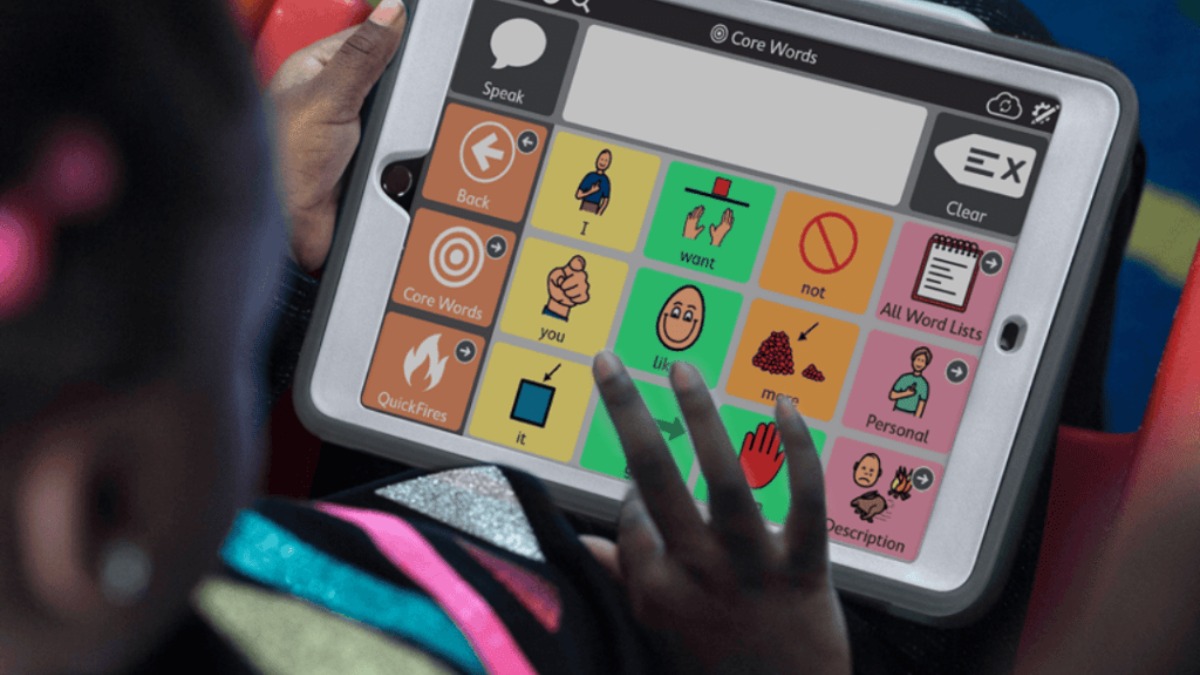Relationship-Based Play: Enhancing Child Development Through Play
December 28, 2024
Relationship-Based Play supports child development by fostering connections and building emotional growth through play-based interventions.
.jpg)
Relationship-Based Play is a therapeutic approach that emphasizes the bond between a child and an adult, often modeling after healthy parent-infant relationships. Unlike traditional play therapy, it employs minimal use of toys and focuses on creating delightful and engaging interactions. By fostering a strong connection between the child and adult, Relationship-Based Play aims to improve social and emotional skills in participating children.
Key Principles of Theraplay
Relationship-Based Play is grounded in the principles of Theraplay. Theraplay is a structured play-based technique designed to boost emotional development and improve behavior through joyful and sensitive interactions.

Incorporating these core principles allows Theraplay to foster a nurturing environment where children build vital social skills and emotional resilience.
Benefits of Relationship-Based Play
Relationship-Based Play (RBP) leverages the principles of Theraplay to bring about significant benefits in children by focusing on the bond between the child and the adult. This play-based intervention encourages social and emotional development, ultimately contributing to a child's overall well-being.
Promoting Positive Interactions
One of the core strengths of Relationship-Based Play is its ability to promote positive interactions between the child and the caregiver or therapist. This form of play emphasizes activities that are both engaging and enjoyable, creating an environment where children can practice social behaviors in a safe and supportive setting.
- Joyful Engagement: The emphasis on fun activities helps children view interaction as enjoyable, making them more likely to seek out and participate in social situations.
- Sensitive Response: The minimal use of toys means that the caregiver's or therapist's attention is focused entirely on the child, making the child feel seen and heard.
- Practice Social Skills: Through guided play, children learn essential social skills such as taking turns, expressing emotions, and understanding non-verbal cues.
Building Self-Esteem and Trust
Relationship-Based Play significantly impacts children's self-esteem and trust. By engaging in a series of structured yet enjoyable activities, children learn to view themselves positively and develop trust in their caregivers or therapists.
- Self-Esteem: Successfully participating in activities boosts children's confidence. They learn that their actions have value and that they can contribute meaningfully to interactions.
- Trust: Consistent and positive interactions in RBP help in building trust. Children learn that they can rely on their caregivers, which is vital for forming secure attachments.
- Safety and Comfort: The structured environment of RBP ensures that children feel safe and calm, further reinforcing their sense of trust and emotional security.
Focusing on these fundamental areas, Relationship-Based Play helps children cultivate the social and emotional skills essential for building meaningful, positive relationships, creating a strong foundation for their long-term well-being.
The Structure of Relationship-Based Play
Relationship-based play sessions are carefully structured to foster positive interactions and emotional growth in children. The structure includes the duration of each session and the components that make up a session.
Duration of Sessions
Typically, relationship-based play sessions last around 20 minutes. These sessions are designed to be short yet impactful, providing enough time for meaningful interaction without overwhelming the child. Sessions usually take place once a week over the course of four weeks. This consistent frequency helps children develop trust, safety, and a sense of calmness.
Components of a Session
Each relationship-based play session is composed of several key components. These components aim to build trust, establish a connection, and provide a sense of safety and calmness for the child.
- Warm-Up Activity: The session begins with a warm-up activity, designed to initiate on a positive note and help the child feel comfortable.
- Engaging Play:This is followed by engaging play, featuring activities that promote interaction and eye contact, such as peekaboo games, interactive storytelling, or simple cooperative games
- Focused Task: Next, a focused task targets specific emotional or social skills through activities like turn-taking games or role-playing scenarios.
- Calming Activity: A calming activity, such as gentle breathing exercises or guided imagery, helps transition the child to a relaxed state.
- Snack Time: The session concludes with snack time, a shared and calming activity that reinforces trust and safety.These components form the foundation of relationship-based play, ensuring that each session is meaningful and beneficial for the child's emotional and social development.
Implementing Relationship-Based Play
Relationship-Based Play centers around creating joyful and positive interactions between the caregiver and the child. This play-based intervention is modeled on healthy parent-infant relationships and emphasizes the importance of having fun together. The goal is to foster a nurturing environment where the child feels safe and valued.
Key aspects of enjoyable interactions include:
- Eye contact: Enhances emotional connection and trust.
- Smiling and laughter: Promotes a sense of joy and bonding.
- Physical closeness: Reinforces safety and affection.
Engaging in fun-based activities such as shared games and playful activities helps children to practice positive interactions and develop stronger emotional ties with their caregivers. Minimal use of toys ensures that the focus remains on the interaction, not on the object.
Supporting Social and Emotional Development
Relationship-Based Play is designed to support the social and emotional development of children by creating opportunities for them to engage in meaningful interactions. Based on the principles of Theraplay, this form of play therapy promotes the development of important social skills and emotional resilience.
Supporting social and emotional development in children through Relationship-Based Play helps children to feel secure, calm, and ready to explore their world. This play-based approach encourages caregivers to be actively involved, creating a space where their children can thrive emotionally and socially.
Role of Caregivers in Relationship-Based Play
Caregivers are integral to the success of Relationship-Based Play. They serve as the primary facilitators of sessions, guiding and participating in activities alongside the child. This shared experience strengthens the bond between caregiver and child, making the child feel more secure and valued.
Key responsibilities for caregivers in Relationship-Based Play sessions include:
- Active Participation: Engaging in all activities with genuine enthusiasm and presence.
- Positive Reinforcement: Using praise and encouragement to boost the child's self-esteem.
- Observational Skills: Monitoring the child's behavior and emotional responses to adjust activities as needed.
The relationship between the child and the caregiver is at the core of this play-based intervention. Minimal use of toys encourages direct interaction and communication, further enhancing the bond.
Creating a Safe and Calm Environment
A safe and calm environment is crucial for Relationship-Based Play. It's not just the physical space, but also the emotional atmosphere that needs to be carefully cultivated. This helps the child to feel secure, relaxed, and open to engaging in the activities.
Aspects of creating a safe and calm environment include:
- Physical Space: Ensuring the area is comfortable, free of hazards, and conducive to play.
- Emotional Climate: Maintaining a calm and supportive demeanor, so the child feels at ease.
- Routine: Sticking to a consistent schedule helps the child know what to expect, reducing anxiety and promoting a sense of safety.
Caregivers must ensure that each session ends on a calm and positive note. This routine helps children to wind down, reinforcing the session's benefits of trust and emotional safety.
Impact of Relationship-Based Play
Relationship-Based Play has a profound impact on the development of trust and safety in children. The structured activities are designed to help children engage in fun-based interactions, which play a crucial role in building trust. Through consistent, positive experiences, children learn that it is good to be a child and that they can rely on their caregivers.
Relationship-Based Play also significantly fosters emotional well-being in children. The approach is designed to increase self-esteem and promote positive interactions, crucial elements for emotional health. When children experience enjoyable, positive interactions, they feel valued and understood, enhancing their self-esteem.
The safe and calm environment created during the sessions supports the child's ability to regulate emotions. This setting is vital for helping children learn to manage stress and feelings of anxiety
Incorporating these elements, Relationship-Based Play helps children build trust and safety while supporting their overall emotional well-being, making it an essential tool for caregivers, parents, and therapists.
Create Emotional Safety with WonDIRful Play
At WondIRful, we specialize in DIR/Floortime therapy in New Jersey to foster emotional safety and developmental growth in children. Our relationship-based play sessions provide a nurturing environment where children can thrive emotionally and socially. If you're in New Jersey, discover how our services can support your child’s unique journey. Contact us today to learn more!
Recent articles













.jpg)


.jpg)






.jpg)











.jpg)
.jpg)

.jpg)
.jpg)
.jpg)



.jpg)
.jpg)
.jpg)

.jpg)
.jpg)

.jpg)





.jpg)
%20(1).jpg)

.jpg)






.jpeg)









.jpg)
.jpg)
.jpg)
.jpg)
.jpg)


.jpg)
.jpg)
.jpg)
.jpg)
.jpg)
.jpg)
.jpg)
.jpg)
.jpg)
.jpg)
.jpg)
.jpg)
.jpg)
.jpg)
.jpg)
.jpg)
.jpg)
.jpg)
.jpg)
